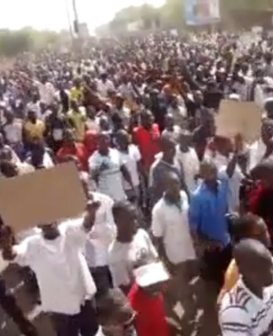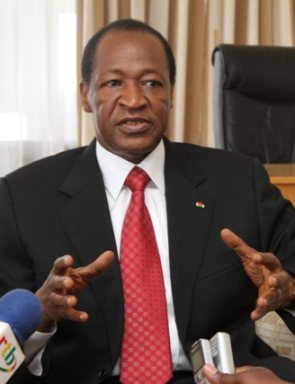|
Burkina Faso Politics | Science - Education Protest wave reaches Burkina Faso
Students in Burkina Faso have already protested for several weeks to demand improvements of the country's education system. But as police violence last week resulted in the death of one protesting student, the limited protests turned into massive riots.
So far, President Compaoré has not been challenged directly by the student protesters. But the new calls for general protests are directed against the long-time Burkinabe President. It remains unsure who stands behind the general protest call and whether these are groups with a foothold in Burkina Faso or only in the Diaspora. But the Compaoré regime is becoming visibly nervous about the protest movement threatening to become wider. Reports from Ouagadougou today indicate the city is dominated by the armed forces. Also other Burkinabe cities reportedly have a higher than normal army presence. President Compaoré came to power in a military coup in 1987. Since 1991, and latest in 2010, he has been elected five times to the Burkinabe presidency in more or less credible elections. The opposition has claimed systematic electoral fraud at each poll, at one occasion even boycotting elections altogether. Mr Compaoré has governed Burkina Faso in a relatively liberal manner, without systematic human rights violations or becoming too authoritarian. By now, however, the rest of West Africa - with the exception of The Gambia and Côte d'Ivoire - have moved forward to real democracy and the Compaoré regime stands out as an ancien regime without true democratic institutions. By staff writer © afrol News - Create an e-mail alert for Burkina Faso news - Create an e-mail alert for Politics news - Create an e-mail alert for Science - Education news
On the Afrol News front page now
|
front page
| news
| countries
| archive
| currencies
| news alerts login
| about afrol News
| contact
| advertise
| español
©
afrol News.
Reproducing or buying afrol News' articles.
You can contact us at mail@afrol.com









